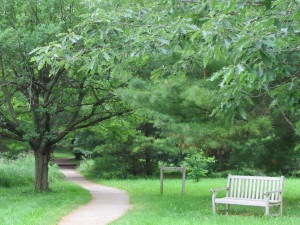by Michael Arloski, PhD – ICPA:
Wellness always seems to be working toward answering one critical question: Why don’t people do what they know they need to do for themselves? Providing people with good information about physical fitness, stress management, nutrition, etc., is important, but insufficient. A lack of information isn’t the problem. With the amount of media attention given to health and well-being, it is hard to believe that most people don’t already know more than enough to live very well lives. Articles on cholesterol, healthy relationships, exercise and smoking cessation abound. But where is the motivation to change, and what is blocking it?
Whether we are looking at our individual health, or wellness programming for a small or large organization, there seem to be certain factors that have emerged in the decades that the wellness movement could call itself a field of study. Let me share some informal suggestions or tenets that, after many years in the “wellness biz,” it all comes down to for me.
1) Wellness is a holistic concept. Anything short of that is incomplete and ultimately ineffective. We need to look at the whole person and program for the mind, body, spirit and environment. Just picking the dimension of wellness that you like and minimizing the others doesn’t work in the long run.
* Imagine each dimension of wellness in your life like a spoke on a wheel. Draw a picture of your wellness wheel, extending your physical fitness spoke, your spiritual development spoke, your nutrition spoke, etc., out as far as you feel you have developed it, and practice what you preach. Do you have a wheel that rolls reasonably well? Where do you need to put your energy into learning more and practicing more?
2) Self-esteem is the critical factor in change. Wellness is caring enough about yourself to take stock of your life, make the necessary changes and find the support to maintain your motivation. Heal the wounds. Find what is holding you back from feeling good about yourself and work through the blocks, not around them.
As psychiatrist Jerry Jampolsky says, everything we do comes either from love or from fear. Where do your wellness lifestyle efforts come from? For many of us, change requires the hard, roll-up-the-sleeves work of facing our fears and healing old wounds received during our experience growing up in our families of origin and from our peer groups and communities. Positive affirmations, or self-statements, are excellent, but need to be coupled with this type of lifelong self-reflective work.
* Identify one negative message you frequently say to yourself (“You’re so stupid!” “You’ll never amount to anything,” etc.). Relax for a minute or two with your eyes closed. Think of the negative message, and say out loud in a shout, “Who says?” Notice who flashes into your mind: a parent, a teacher, a one-time peer? See with whom you have some unfinished business to deal with.
3) The people with whom we surround ourselves either help us stretch our wings and soar, or clip them again and again. Positive peer health norms encourage wellness lifestyle changes. Mutually beneficial relationships with friends, lovers, family members and colleagues who care about us as people are what we need to seek and create in our lives. Rather than being threatened by our personal growth, they support it. Do your friends, partners, etc., bring out your OK or not-OK feelings? Giving and receiving strokes are what it’s all about. Friends keep friends well.
* List who has joined your inner circle of supportive friends in the last ten years. Give thanks—or grieve, and get busy making new friends!
4) Break out of the trance! Conscious living means becoming aware of all the choices we have and acting on them. It involves a realization that we don’t have to run our lives on automatic pilot. We can turn off the television (remember, TV stands for “time vacuum”), read labels, turn off the lawn sprinklers when we have enough rain, notice how our food tastes, and notice how tense and contracted we are when we drive 15 mph over the speed limit. It means consciously working on our relationships, life goals and maximizing our potential.
* For three work days in a row, minimize your attachment to the world of the media: no radio, television, Internet, newspapers or magazines. See what you become aware of about yourself and the world around you.
5) A sense of connectedness — to other people, other species, the Earth and the “something greater” — grounds us in our lives. We are all of one heart. Much of this sense can come out of the land we live on. By identifying with where we live and getting to know the plants, animals, weather patterns, water sources and the landscape itself, we develop not only a love for it, but feel that love returned. Through our commitment to our place on earth we value and protect our environment by the way we live our lives, and by how we speak at the ballot box. Through our contact with the natural world we experience a solid sense of belonging, peace and harmony.
Theologian Matthew Fox likes to say that we can relate to the Earth in any of three ways. We can exploit it, recreate on it, or we can be in awe of it. I believe it is within a sense of awe that our potential for growth and healing is multiplied. From such a state of wonder it is easy to see all other species as relatives. The Lakota like to close every prayer with the words “Mitakaue Oyasin”: “For all my relations.”
* Spend twenty minutes in a natural area just listening to every sound you hear. Locate its origin. Identify patterns. Try it with your eyes closed part of the time. Cup your hands behind your ears and try it. Note your awarenesses.
6) We are primarily responsible for our health. There are the risk factors of genetics, toxic environments and the like, but our emotional and lifestyle choices determine our health and well-being more than anything else. As much as we’d like to cling to blame and cop-outs, we do have to be honest with ourselves. The flip side is the empowerment that this realization gives us.
One path out of passivity and illness is to realize what you can do to boost your immune system. Stress, fatigue and poor diet have a tremendous influence on our body’s ability to resist illness and disease. Most people report excessive stress and chronic sleep deprivation.
* To take charge of your own health and boost your immune system, follow the usual wellness advice and live a well-balanced, healthy lifestyle but, more specifically, experiment with getting more rest and practicing some established form of relaxation training.
7) From increased self-sufficiency comes the confidence and power that overshadows fear. The Australian aboriginal people say that when a person cannot walk out onto the land and feed, clothe and shelter himself adequately, a deep, primal fear grips his soul. Recognizing our interconnectedness, we grow tremendously when we can care for ourselves on many different levels. Skills, information and tools that enable us to live more fully all increase our self-respect and self-confidence. These could include knowing how to choose our food wisely (or even how to grow it ourselves); how to become more competent at our career; how to adjust the shifter on our bicycle; how to take a hike into a wilderness area; or even how to bake bread from scratch. We need to learn these skills and teach them to others, especially our children.
* Identify some skill you want to learn that would make your life easier, more economical or fun (baking, something mechanical, an outdoors skill). Locate a person from whom you can learn that skill and arrange an exchange of knowledge, skill, time, or some other reciprocal arrangement you both like.
8) As much as we all need time with others, we all need time apart. Solo time, especially in the natural world, helps us relax, de-contract and get beyond the distractions of modern life that prevent us from really knowing ourselves. Peoples from all around the world have traditions of spending time alone (usually in a wilderness setting) in order to gain vision about the direction and meaning in their lives. There are some powerful reasons for this.
* Find a partner who shares your desire to spend one full day in solo time. Locate a nearby natural area where you both feel safe and would enjoy spending the day. Pick a day with a relatively good weather forecast. Take a whistle with you, appropriate clothing, rain gear, etc. Bring water, but no food unless you have a special dietary consideration. Do not bring anything to read, or anything to write with. When you arrive, you should both select a small area (10 to 15 yards in diameter, max) where you would like to spend five to eight hours alone. Your site should be close enough for your partner to hear your whistle easily, but far enough away that you can have complete privacy. Taking opposite sides of the same hilltop ridge works very well for this. Reunite at a prearranged time. Spend your time in contemplation and awareness of everything around you. This is a journey into inner and outer nature. Reflect and write about your experience afterward if you like.
The goal here is not endurance. Bail out if you have a nasty change in weather, feel ill, etc. You can always reschedule. Though this exercise in solo time is not physically demanding, you need to be your own judge, or seek your physician’s advice, if you have any health concerns.
9) You don’t have to be perfect to be well. Extreme perfectionism is a shame-based process that feeds a really negative view of ourselves. Workaholism, anorexia and other addictive behaviors can result. Wellness does not mean swearing off hot-fudge sundaes. It just means not “b.s.-ing” yourself about when you last had one! Whenever our healthy habits move from being positive addictions to being compulsive behavior that works against us, we’re usually the last ones to know. A lot of time, extreme behavior is a way to distract yourself from some other issue that needs your attention.
* Get a gauge on your diet, exercise, etc. Read several sources and see what the experts recommend. Check your program out with a qualified local resource, such as a nutritionist or exercise specialist.
10) Play! We all need to lighten up and not take ourselves (and wellness) so seriously. Remember the lessons of the coyote and be playful, even ornery in a non-malicious way. Let the child within out to play. Give yourself permission.
The “work hard, play hard” philosophy does little to help us maintain the balance needed for a healthy life. Psychophysiology works twenty four hours a day, every day (not just on weekends). Integrate a healthy sense of humor and play into the workplace. Make sure your yang equals your yin!
* List several of your favorite “play” activities that you either do, or did at one time in your life. Now note when you last engaged in each of these activities. Celebrate, or contemplate what you’ve (temporarily) let go of in your life. Have fun reclaiming it!
Even with these tenets, there is no concrete wellness formula. You have to discover what works for you. Take them not as rules, but as modern folklore gathered by one who has walked the wellness way for quite a few years.
Article originally posted at ICPA.org.
